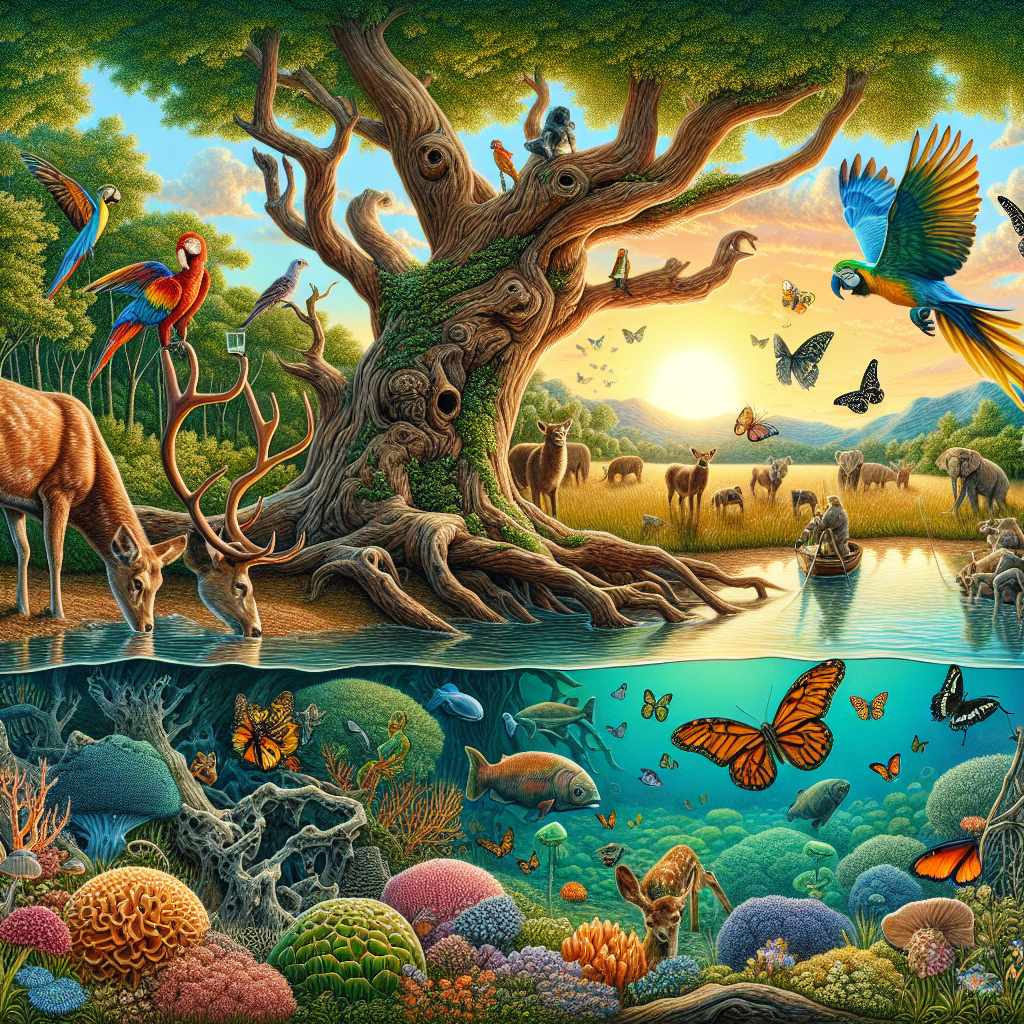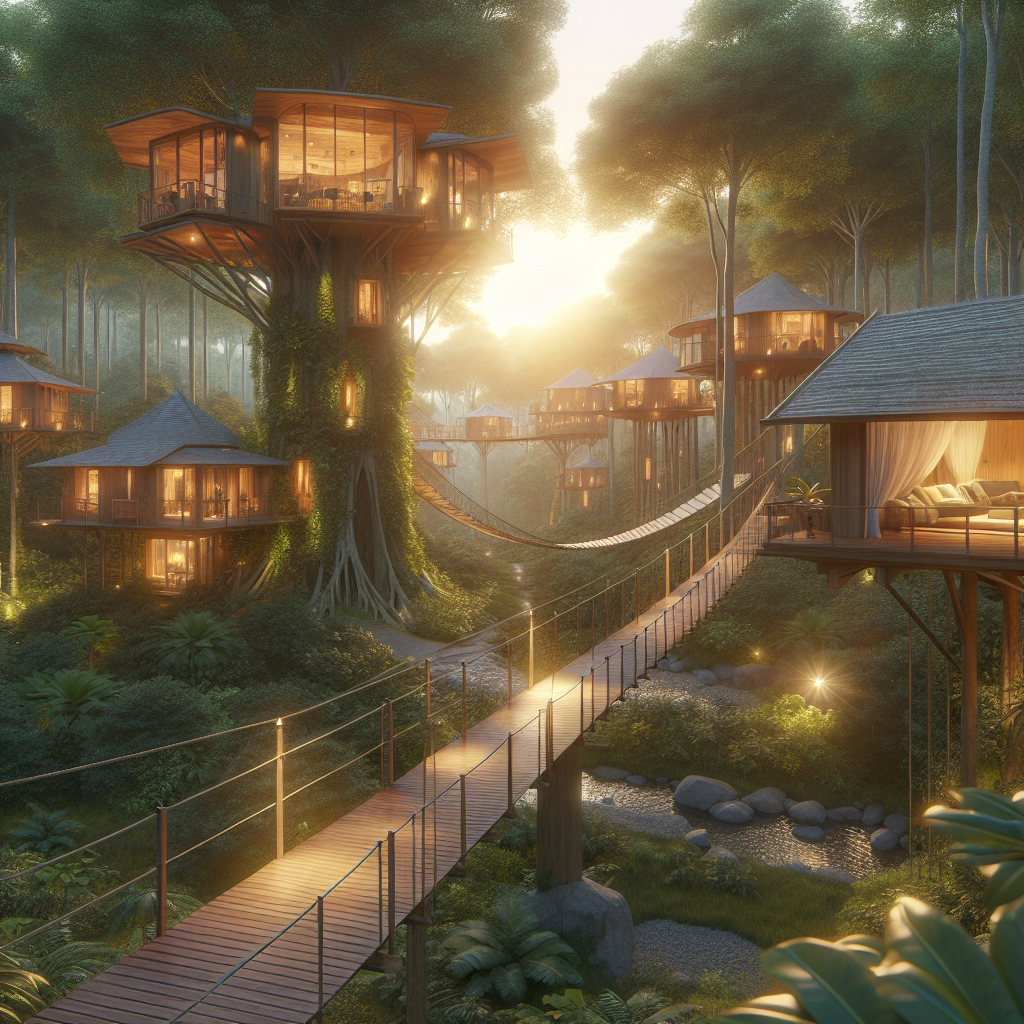Preserving Wildlife: The Importance of Private Nature Reserves in Biodiversity Conservation
In today’s rapidly changing world, the need for conservation and preservation of wildlife and natural habitats is more critical than ever. With increasing human population, urbanization, and industrialization, many species are facing the threat of extinction. Private nature reserves play a vital role in biodiversity conservation by providing sanctuary for endangered species, protecting ecosystems, and promoting sustainable practices.
Private nature reserves are privately owned lands set aside for the preservation of wildlife and natural habitats. These reserves can vary in size from small parcels of land to vast tracts of wilderness, and are often managed by individuals, families, conservation organizations, or even corporations. Private nature reserves can be found all over the world, from the lush rainforests of the Amazon to the savannas of Africa.
One of the primary reasons why private nature reserves are important for biodiversity conservation is that they provide a safe haven for endangered species. Many species are facing extinction due to habitat destruction, poaching, and climate change. By setting aside land for conservation, private nature reserves help protect these species from threats and allow them to thrive in their natural environment. Without these protected areas, many species would face a much higher risk of extinction.
In addition to providing sanctuary for endangered species, private nature reserves also play a crucial role in protecting ecosystems. Ecosystems are complex networks of plants, animals, and microorganisms that are interdependent on each other for survival. When one species is lost, it can have a ripple effect on the entire ecosystem, leading to a decline in biodiversity. By preserving natural habitats, private nature reserves help maintain the balance of these ecosystems and prevent the loss of valuable biodiversity.
Furthermore, private nature reserves promote sustainable practices that benefit both wildlife and humans. Sustainable practices such as organic farming, reforestation, and eco-tourism can help protect natural habitats while also providing income for local communities. By supporting these practices, private nature reserves not only contribute to biodiversity conservation but also promote economic development and social well-being.
FAQs about Private Nature Reserves:
1. Are private nature reserves effective in conserving wildlife?
Yes, private nature reserves are an essential tool in biodiversity conservation. By providing sanctuary for endangered species, protecting ecosystems, and promoting sustainable practices, private nature reserves help preserve wildlife and natural habitats.
2. How can individuals support private nature reserves?
Individuals can support private nature reserves by donating funds, volunteering their time, or participating in eco-friendly activities such as eco-tourism. By supporting these reserves, individuals can help contribute to biodiversity conservation and promote the protection of wildlife.
3. What are some examples of successful private nature reserves?
There are many successful private nature reserves around the world, including the Maasai Mara National Reserve in Kenya, the Galapagos Islands in Ecuador, and the Tambopata National Reserve in Peru. These reserves have made significant contributions to biodiversity conservation and have helped protect endangered species.
4. How do private nature reserves differ from public nature reserves?
Private nature reserves are privately owned lands set aside for conservation purposes, while public nature reserves are owned and managed by government agencies. Private nature reserves often have more flexibility in their management practices and can implement innovative conservation strategies.
5. How can private nature reserves help combat climate change?
Private nature reserves play a crucial role in combatting climate change by protecting forests, wetlands, and other natural habitats that act as carbon sinks. By preserving these ecosystems, private nature reserves help reduce greenhouse gas emissions and mitigate the impacts of climate change on wildlife and humans.
In conclusion, private nature reserves are an essential tool in biodiversity conservation. By providing sanctuary for endangered species, protecting ecosystems, and promoting sustainable practices, private nature reserves help preserve wildlife and natural habitats for future generations. Individuals can support these reserves through donations, volunteering, and eco-friendly activities to help contribute to the protection of biodiversity and the environment.





Leave A Comment